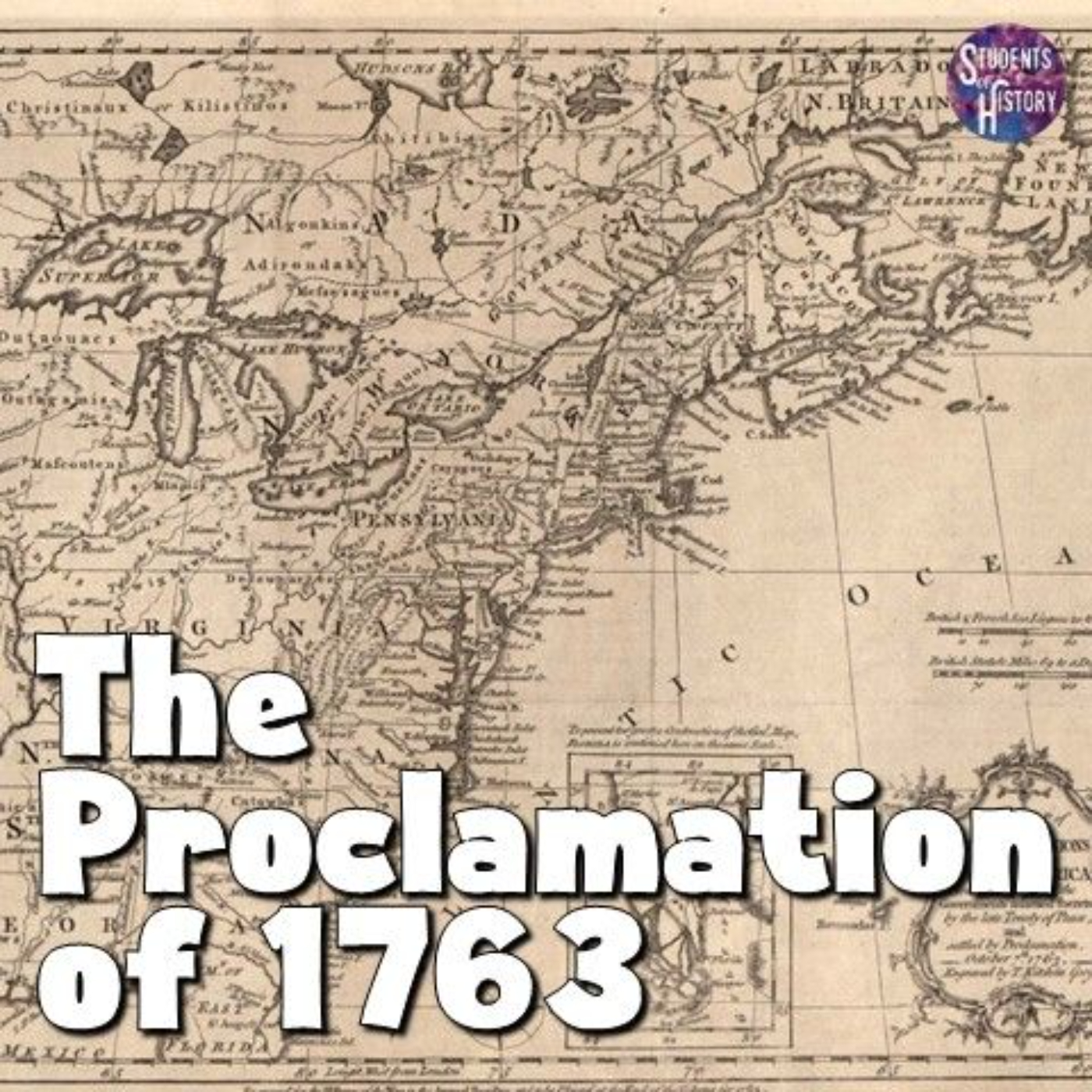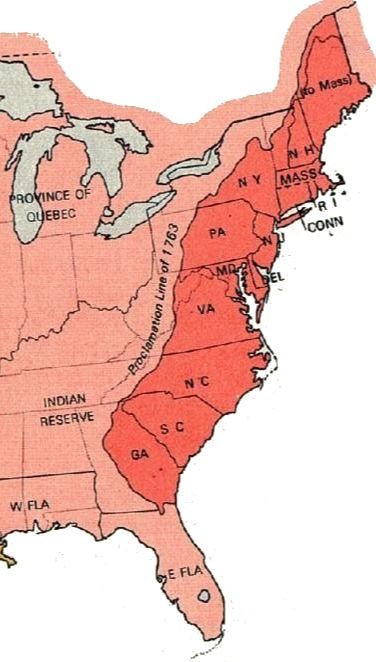The Proclamation of 1763

The American colonies growing more crowded by the year in the mid-1700s. Good farmland was getting harder to come by and therefore more expensive. Many colonists hoped to settle further west in hopes of new, cheaper land.
The problem however, was that this land was already occupied by Native Americans. The treaty that ended the French and Indian War gave the British Empire the territory from the Appalachian Mountains to the Mississippi River.
To keep the peace, the British Empire decided to pass a law banning colonists from settling in this territory. The Proclamation of 1763 created an imaginary north-south line through the Appalachian Mountains that colonists were not allowed to settle past.

Additionally, settlers who were already living west of the Appalachians had to return. It also forbade colonists from trading and buying land from Native Americans.
There were several main purposes for the proclamation. After the French and Indian War, the British were in much debt and could not administer the colonies well. Adding more land would make it even more difficult.
By creating the Proclamation line, the British kept the colonists close to the coast making it easier to tax them and regulate trade. Additionally, even though the French and Indian War was over, the French would most likely not give up their claims to the land in the Ohio Valley.
Many American Indian tribes, who had allied with the French in the war, were still fighting for control of their homeland. The British did not want colonists moving across the Appalachians and fueling tension with the French and Native Americans.
Sir William Johnson, superintendent of Indian Affairs in North America and agent to the Iroquois League, wrote in 1764 that, "The Indians all know we cannot be a match for them in the midst of an extensive woody Country ... from whence I infer that if we are determined to possess Our Posts and trade securely, it cannot be done for a Century by any other means than that of purchasing the favor of the numerous Indian inhabitants."
The Proclamation of 1763 created enormous resentment among the colonists towards Britain. They felt that it was unfair of Britain to forbid them from settling on the land because they helped Britain fight for it during French and Indian War.
Some settlers ignored the Proclamation and moved west, creating conflict with the Native Americans that lived there. Pontiac's War, named for the great Odawa leader, was launched in 1763 by a loose confederation of tribes from the Great Lakes region, the Illinois Country, and Ohio Country who were unhappy with the British over this and other policies.
While most American settlers chose to obey the Proclamation of 1763, possibly reducing the amount of conflict that could have occurred without it’s passage, the resentment it left Americans with would have a lasting impact.